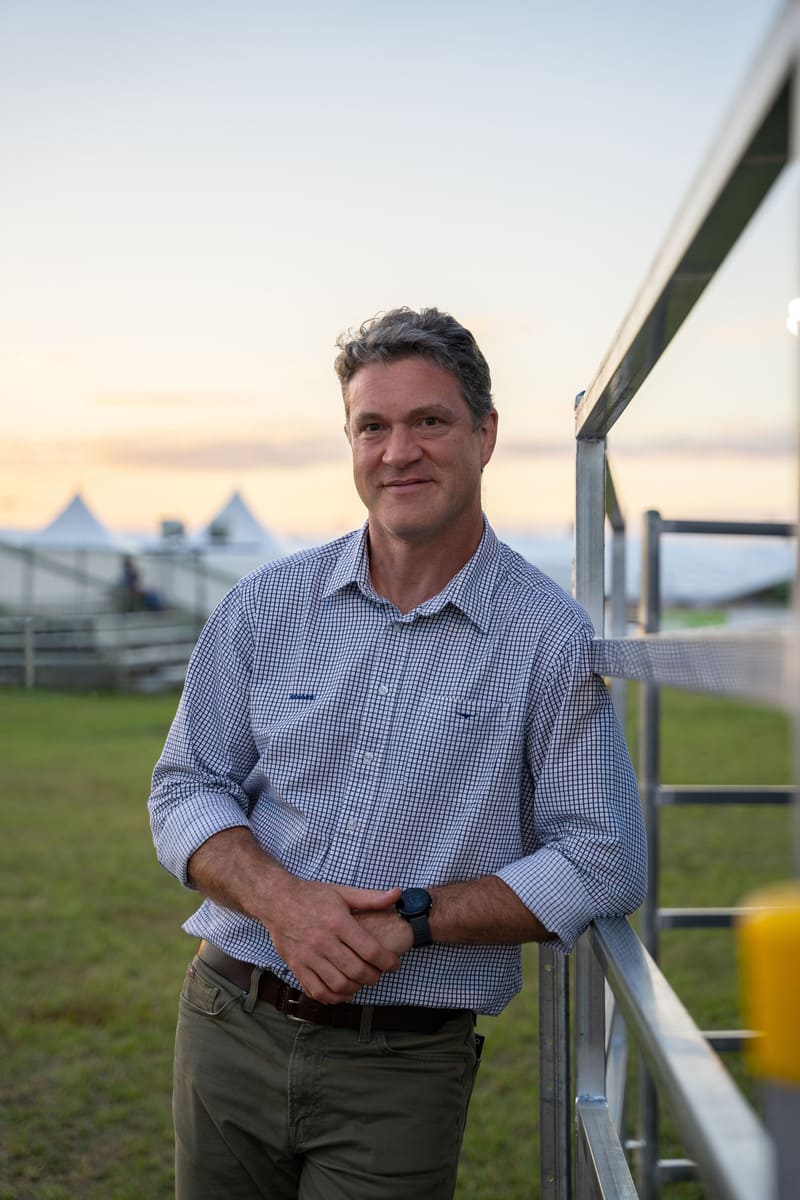05/06/2024
Global beef production is expected to contract in the second half of 2024, providing support to global prices, according to a newly-released report by agribusiness banking specialist Rabobank.
In its recently-released Global Beef Quarterly Q2 2024, the bank says global beef production for quarter two is forecast to be marginally higher than in the same quarter last year, but volumes for quarters three and four are expected to fall year-on-year (YOY).
Rabobank says more beef is expected to be produced in Australia and Brazil in the second half of this year, however these increases are likely to be outweighed by production contractions in Europe, the US and China.
“Contractions in beef production in Europe and the US are expected to be too big for the increases forecast in Australia and Brazil to offset. And China’s production is set to increase in the second quarter before contracting later in the year,” report lead author, RaboResearch senior animal protein analyst Angus Gidley-Baird said.
Looking at global pricing, Mr Gidley-Baird said, a two-speed cattle market continues to exist with the North America tracking close to record highs – amid the contraction in local production – while other regions remained more subdued.
“Europe finds itself in the middle ground, despite a recent uptick in production,” he said.
The report said these regional disparities were beginning to influence international trade flows, with the US ramping up its import volumes and major Asian markets maintaining steady import levels.
Australia
The report said the Australian beef market remains balanced, but increasing import demand from the US was starting to impact.

Mr Gidley-Baird said the contraction in US beef production was starting to flow through to Australian beef markets. “Australian export volumes to the US were up 117 per cent in April and year-to-date volumes to the US are up 89 per cent,” he said. Meanwhile export volumes to other major markets are not showing the same increase.
“The contraction in US production – particularly the reduction in cull cow and bull slaughter – provides opportunities for Australian lean trimmings export volumes,” Mr Gidley-Baird said. “It also provides opportunities for Australian volumes into key Asian markets where the US is a comparable supplier to Australia.”
Mr Gidley-Baird said while export volumes to the US and US import prices had increased, this had not completely flowed through to Australian cattle prices yet.
“Cattle supply volumes in Australia, ongoing soft demand in Asian countries and relatively full supply chains, we believe, are the reasons for not seeing prices transfer through,” he said.
The report said first-quarter Australian slaughter and production volumes had seen a 17 per cent and 15 per cent increase year-on-year respectively, reflecting the increased number of cattle in the system following consecutive years of rebuilding activity.
The Rabobank report noted volumes in the first quarter of 2024 were similar to those in the last quarter of 2023 – illustrating a sustained increase in Australian beef production.
Without any strong demand or supply forces on the horizon, Mr Gidley-Baird said, the bank believed Australian cattle prices would continue to trade around current levels into the third quarter.
Animal disease ever-present risk
The report said the bank continued to closely monitor animal disease risks in different locations around the world, due to the potential impact on the global beef sector.
Mr Gidley-Baird said the recent transmission of H5N1 avian influenza to dairy cattle in the US was one such issue, although no cases had been reported in beef herds and beef food safety remained uncompromised.
“Meanwhile Brazil recently declared itself free from food-and-mouth disease without vaccination. Official recognition by world animal health authorities could significantly enhance Brazil’s trade prospects,” he said.
Climate disclosure
The Rabobank Beef Quarterly said the growing demand for climate disclosures around the world was also edging into beef supply chains, presenting both opportunities and challenges.
The report said beef companies around the world were facing a “balancing act” as they looked to proactively respond to new sustainability requirements and capitalise on associated opportunities, while also managing the risk of moving too early in a market and regulatory environment that is rapidly evolving.
Mr Gidley-Baird said the beef industry was facing a particular challenge, with its ‘scope 3’ emissions, which were substantial, yet difficult to measure.
“Scope 3 supply chain emissions represent a significant portion of food retailers’ greenhouse gas emissions. Under the reporting regulations, large beef companies will be required to navigate the complexities of collecting and reporting accurate emissions data,” he said.
“At farm level, carbon calculators and measurement tools will become important to facilitate a bottom-up approach to measurement.”
Rabobank Australia & New Zealand Group is a part of the international Rabobank Group, the world’s leading specialist in food and agribusiness banking. Rabobank has more than 125 years’ experience providing customised banking and finance solutions to businesses involved in all aspects of food and agribusiness. Rabobank is structured as a cooperative and operates in 37 countries, servicing the needs of approximately 8.4 million clients worldwide through a network of more than 1000 offices and branches. Rabobank Australia & New Zealand Group is one of Australasia’s leading agricultural lenders and a significant provider of business and corporate banking and financial services to the region’s food and agribusiness sector. The bank has 90 branches throughout Australia and New Zealand.
Media Contacts:
Denise Shaw
Head of Media Relations
Rabobank Australia & New Zealand
Phone: 02 8115 2744 or 0439 603 525
Email: denise.shaw@rabobank.com
Will Banks
Media Relations Manager
Rabobank Australia
Phone: 0418 216 103
Email: will.banks@rabobank.com
